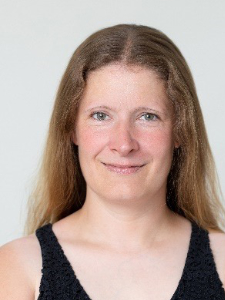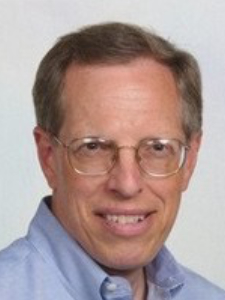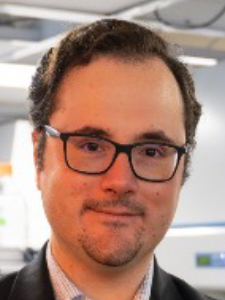
Key Note Speakers

Charlotte Uetrecht
Group Leader, Deputy Director Centre for Structural Systems Biology (CSSB)
Group Leader Deutsches Elektronen Synchrotron (DESY)
Professor University of Lübeck, Institute for Chemistry and Metabolomics
Group Leader Deutsches Elektronen Synchrotron (DESY)
Professor University of Lübeck, Institute for Chemistry and Metabolomics
Since 2024, Dr. Charlotte Uetrecht is Full Professor for Chemistry at the University of Lübeck, co-director of the ICM and deputy director of CSSB leading the group Dynamics of viral Structures. She is specialized in studying large protein complexes, mostly of viral origin, with structural, especially native, mass spectrometry (MS) and combination with X-rays. The group focuses on replication complexes in coronaviruses, norovirus particles and method development.

Scott M Wheelwright
Co-founder and President
BioChromatographix International Pte. Ltd.
Scott M Wheelwright PhD is co-founder and president of BioChromatographix International Pte. Ltd. (BCI), a startup company developing chromatography media for purification of viruses, plasmids, and other therapeutics. Scott was founding COO of BioInno Bioscience, a leading CDMO in China, and of Innovent Biologics, a leading biopharmaceutical company in China. Scott worked at many startups in the USA. He was a visiting scholar at the Max Planck Institute for Biophysics and received his PhD in chemical engineering from the University of California at Berkeley.

Stefano Menegatti
Associate Professor, Chemical and Biomolecular Engineering, NC State University
Dr. Menegatti is an Associate Professor and Faculty Scholar in the Department of Chemical and Biomolecular Engineering at NC State University. He is the co-founder of the North Carolina Viral Vector Initiative in Research and Learning (NC-VVIRAL) and the Chief Technology Officer of LigaTrap Technologies, a company commercializing affinity adsorbents for bioseparations. Dr. Menegatti’s main interests are in purification processes and analytical technologies dedicated to biological therapeutics. His group introduced the paradigm of „flow-through affinity chromatography“ and a number of affinity ligands for the purification of proteins, viral vectors, and cells. His efforts on innovating biomanufacturing technologies have received several awards including the NSF CAREER award and the ALCOA Foundation Research Achievement Award.
Pre-conference workshops
Register for the pre-conference workshops during the registration procedure
Workshop 1
Sunday, November 9, 2025
11:00 – 12:00
Oligonucleotide production, purification and application in biopharmaceutical processing and their quality requirements
Michel Eppink (TU Delft, The Netherlands),
Egbert Müller (Tosoh Bioscience, Germany)
Egbert Müller (Tosoh Bioscience, Germany)
Abstract:
Oligonucleotide-based therapeutics such as single-stranded antisense oligonucleotides (ASOs), small interfering RNAs (siRNAs), small hairpin RNAs (shRNAs), anti-micro RNAs (anti-miRs), and aptamers have been investigated over the last decades and their promise as a new drug modality is now being realized. There has been tremendous development since the first antisense approach in living cells in 1978. The growing interest in nucleotide-based therapeutics is driven by the high potential of the treatments of a variety of medical conditions, the growing number of FDA-approved oligonucleotide drugs, and an increased focus on personalized medicine and on the development of therapies for rare diseases
The workshop provides a comprehensive insight into the production and purification of modern oligonucleotide therapeutics. It focuses on innovative approaches to the chemical synthesis, process optimization, and quality control of nucleic acid-based drugs. Moreover, from a quality perspective, the regulatory requirements will be discussed during the development of an oligonucleotide trajectory towards a commercial product.
Workshop 2
Sunday, November 9, 2025
12:15 – 13:15
Insights in Polynucleotide Production: Overcoming Purification Challenges in mRNA and Plasmid Manufacturing
Cristina Dias-Cabral (Chemistry Department, Health Sciences Research Centre (CICS), University of Beira Interior, Portugal
Abstract:
Predicting biomolecule adsorption onto chromatography resins remains a key challenge in biopharmaceutical separations.
A thorough mechanistic understanding of adsorption is crucial for optimizing chromatographic performance. Thermodynamic studies, through batch equilibrium experiments and calorimetric analyses, have been instrumental in unraveling complex adsorption mechanisms, with microcalorimetry emerging as an essential tool in preparative chromatography. In particular, flow microcalorimetry (FMC) has proven to be a powerful technique for directly tracking heat signals associated with adsorption and desorption events, under both linear and overloaded conditions. By capturing dynamic thermal profiles, FMC enables characterization of biomolecule – chromatography support interactions, offering real-time insights into biomolecule-resin interactions and aiding in process optimization and scale-up. This workshop will showcase the technical capabilities of FMC alongside other calorimetric methods, including isothermal titration calorimetry (ITC) and differential scanning calorimetry (DSC), illustrating how these techniques enhance process understanding, improve robustness, and accelerate biopharmaceutical development. Emphasis will be placed on FMC as an in-situ approach closely reproducing actual chromatographic conditions. Practical applications in antibody, peptide, and polynucleotide separations using different resins (hydrophobic, ion-exchange, affinity and silica-based) will be discussed.
Workshop 3
Sunday, November 9, 2025
13:30 – 14:30
Microcalorimetry as a Tool in Preparative Chromatography: Versatility and Power
Michel Eppink (TU Delft, The Netherlands)
Sonja Berensmeier (TU Munich, Germany)
Abstract:
A thorough mechanistic understanding of adsorption is crucial for optimizing chromatographic performance. Thermodynamic studies, through batch equilibrium experiments and calorimetric analyses, have been instrumental in unraveling complex adsorption mechanisms, with microcalorimetry emerging as an essential tool in preparative chromatography.
In particular, flow microcalorimetry (FMC) has proven to be a powerful technique for directly tracking heat signals associated with adsorption and desorption events, under both linear and overloaded conditions. By capturing dynamic thermal profiles, FMC enables characterization of biomolecule – chromatography support interactions, offering real-time insights into biomolecule-resin interactions and aiding in process optimization and scale-up.
This workshop will showcase the technical capabilities of FMC alongside other calorimetric methods, including isothermal titration calorimetry (ITC) and differential scanning calorimetry (DSC), illustrating how these techniques enhance process understanding, improve robustness, and accelerate biopharmaceutical development. Emphasis will be placed on FMC as an in-situ approach closely reproducing actual chromatographic conditions. Practical applications in antibody, peptide, and polynucleotide separations using different resins (hydrophobic, ion-exchange, affinity and silica-based) will be discussed.
Workshop 4
Sunday, November 9, 2025
14:45 – 16:15
Purification and characterization of viral cell and gene therapy vectors
Abstract:
Alois Jungbauer (Institute of Bioprocess Science and Engineering, BOKU University and Austrian Centre of Industrial Biotechnology)
The purification and characterization of complex structures, such as viral gene therapy vectors and lipid nanoparticles, require novel approaches due to their distinct size differences from conventional proteins. This workshop explores key methodologies, including convective chromatography, continuous ultracentrifugation, extraction, and hybrid techniques, for processing these biomolecules. Special emphasis is placed on their physical size, composition, and detection using light scattering, optical phenomena, and biochemical methods. Additionally, strategies for developing a platform technology to standardize purification and characterization across this biomolecular class are discussed.


